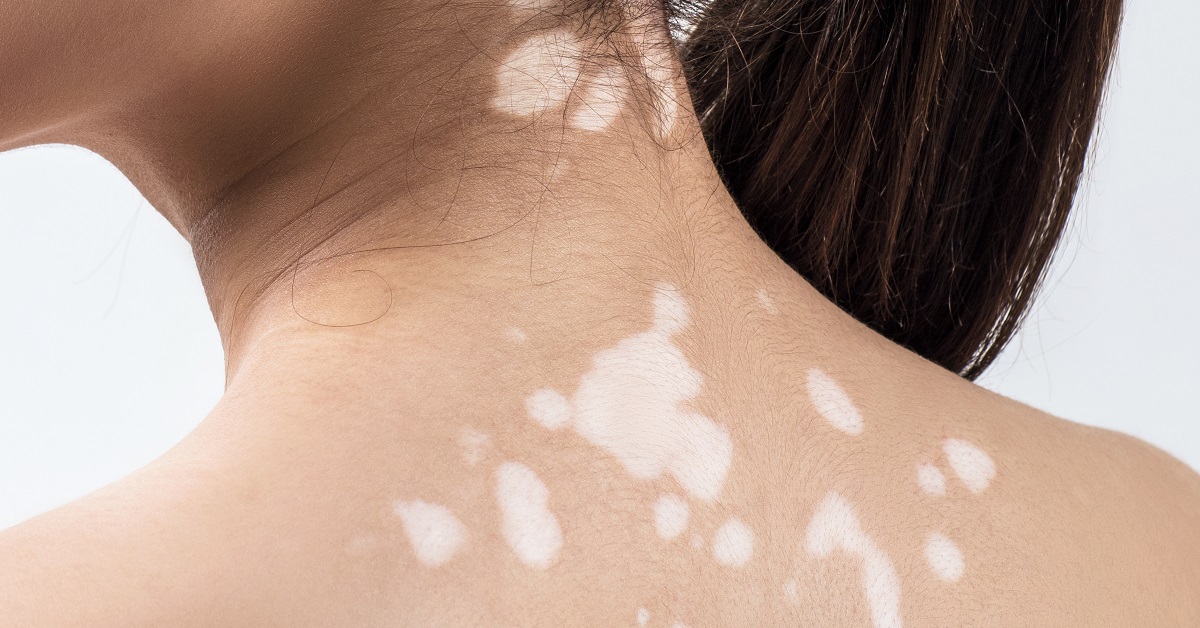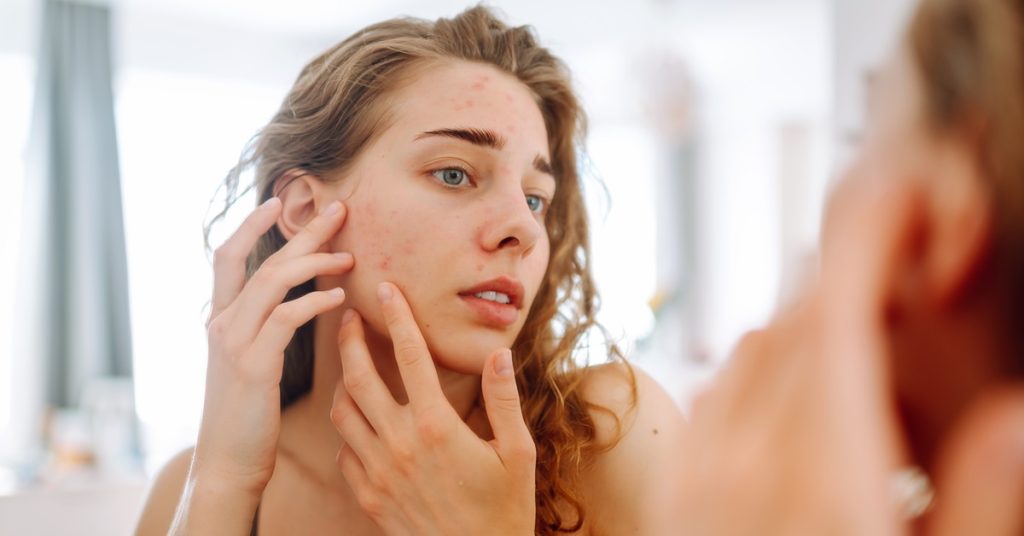The Marietta Dermatologist’s Guide to Vitiligo

Vitiligo, a skin condition characterized by patches of skin losing their pigment, is both a physical and psychological challenge for many individuals. As Marietta’s leading dermatologists, we understand the concerns and uncertainties that come with managing vitiligo. This guide provides comprehensive and accessible information and covers everything from the fundamentals of vitiligo, its symptoms and causes, to various treatment options and lifestyle modifications that can aid in managing vitiligo effectively. Knowledge is power, and our goal is to empower you with the tools and information to navigate this journey with confidence.
What is vitiligo and what causes it?
Vitiligo is a skin condition that causes loss of pigment, resulting in white patches on the skin. It occurs when melanocytes, the cells responsible for producing skin color, are destroyed. The exact cause of vitiligo is not fully understood, but it is believed to be an autoimmune disorder where the body’s immune system mistakenly attacks and destroys its own melanocytes.
Who is at risk for developing vitiligo?
Vitiligo can develop in people of all ages, genders, and races. However, it is more commonly seen in individuals with a family history of the condition or other autoimmune disorders such as thyroid disease and type 1 diabetes. It is also more prevalent in individuals with darker skin tones.
What are the common symptoms of vitiligo?
The main symptom of vitiligo is the appearance of white patches on the skin. These patches can appear anywhere on the body, but they are most commonly found in areas that are exposed to the sun, such as the face, hands, arms, feet, and lips. In some of our Marietta patients, vitiligo also affects their hair and causes premature graying or loss of color.
Can vitiligo be prevented?
There is currently no known way to prevent vitiligo. However, avoiding triggers such as excessive sun exposure, stress, and skin injuries may help in managing the condition. We advise our Marietta patients on the importance of maintaining a healthy lifestyle and scheduling regular dermatology visits for vitiligo check-ups and monitoring.
How is vitiligo diagnosed?
One of our Marietta-based dermatologists can diagnose vitiligo through a physical exam, medical history review, and possibly a skin biopsy. The doctor will also look for other signs of autoimmune disorders to rule out any underlying conditions that may be contributing to the development of vitiligo.
Is there a cure for vitiligo?
There is currently no cure for vitiligo, but there are treatment options available to help manage the condition. It is important to consult with one of our Marietta dermatologists to determine the most suitable vitiligo treatment plan.
Can vitiligo be treated or managed?
For our Marietta patients, we treat and manage vitiligo through various medical treatments and self-care strategies. These include topical creams and ointments, light therapy, oral medications, surgery, sun protection, cosmetic concealment, stress management, and maintaining a healthy lifestyle. It is important to work with your Marietta-based DESSNA dermatologist to find the most effective vitiligo treatment plan for your situation. With proper care and support, vitiligo can be managed, and you can lead a fulfilling life.
Are there any medications available for vitiligo treatment?
There are several medications available for vitiligo treatment. These include topical corticosteroids, calcineurin inhibitors, vitamin D analogues, and immune system modulators. These medications work by controlling the autoimmune response that causes vitiligo and can help improve skin pigmentation. However, it is important to note that results may vary, and it may take several months of consistent use to see improvement. It is crucial to consult with one of our dermatologists in our Marietta office before starting any vitiligo treatment and to follow their instructions carefully for optimal results. Additionally, it is important to regularly monitor the skin for any potential side effects and report them to your doctor immediately.
Is vitiligo a contagious condition?
No, vitiligo is not contagious and cannot be transmitted from one person to another. It is a non-infectious skin condition caused by an autoimmune disorder and does not pose any health threat to others.
How common is vitiligo?
Vitiligo affects approximately 1% of the population worldwide, making it a fairly common skin condition. While it can occur at any age, it is most commonly diagnosed in individuals between the ages of 10 and 30.
Does vitiligo affect all races and ethnicities equally?
No, vitiligo does not affect all races and ethnicities equally. It is more commonly seen in individuals with darker skin tones, but it can occur in people of all races and ethnicities. However, it may be more noticeable in individuals with darker skin because of the contrast between the white patches and their natural skin color. In addition, some studies have shown that vitiligo may be more prevalent in certain ethnicities, such as those of South Asian and Hispanic descent. Individuals of all races and ethnicities need to be aware of the symptoms of vitiligo and consult a dermatologist if they notice any changes in their skin.
Does exposure to the sun worsen vitiligo?
Yes, exposure to the sun can worsen vitiligo. UV rays can damage the skin and cause further depigmentation in areas affected by vitiligo. Individuals with vitiligo need to protect their skin from the sun by wearing sunscreen with a high SPF, covering it up with clothing or accessories such as hats and sunglasses and avoiding prolonged exposure during peak sunlight hours. Additionally, individuals with vitiligo should regularly check their skin for any changes or new patches and consult one of our dermatologists in Marietta, if necessary. Remember, taking proactive measures to protect your skin can help manage the condition and prevent further damage.
Are there any risk factors associated with developing vitiligo?
While the exact cause of vitiligo is still unknown, some risk factors may increase an individual’s likelihood of developing the condition. These include having a family history of vitiligo or other autoimmune disorders, experiencing excessive stress, and having certain genetic markers associated with autoimmune diseases. It is important to discuss any potential risk factors with one of our Marietta-based dermatologists to better understand the condition and develop an appropriate treatment plan.
How can I support someone with vitiligo?
If you know someone with vitiligo, the best way to support them is by being understanding and accepting of their condition. Show them love and encourage them to embrace their unique beauty. Educate yourself about vitiligo and its impact on individuals so you can better understand their experiences and challenges. Offer emotional support and listen to their concerns without judgment. Lastly, spread awareness and promote inclusivity for individuals with vitiligo. Together, we can create a more understanding and supportive community for those living with vitiligo. Let’s celebrate diversity and embrace our unique differences. After all, beauty comes in all forms, and it should be celebrated.
How does vitiligo impact a person’s mental health and self-esteem?
Vitiligo not only affects the physical appearance of an individual, but it can also have a significant impact on their mental health and self-esteem. Living with vitiligo may lead to feelings of anxiety, depression, and low self-confidence because of the social stigma and misconceptions surrounding the condition. Many individuals with vitiligo may struggle with accepting their unique skin and may feel self-conscious or isolated. Individuals with vitiligo need to seek emotional support and connect with others going through similar experiences. Working on improving self-esteem and practicing self-love can also help alleviate some of the mental health challenges associated with vitiligo.
Can vitiligo affect any other parts of the body besides the skin?
For some of our Marietta patients, vitiligo affects other areas of the body besides the skin. This condition is known to have systemic effects on various organs such as the eyes, ears, and mucous membranes. In some cases, individuals with vitiligo may experience hearing loss or changes in their vision because of the depigmentation of these areas. It is important for individuals with vitiligo to regularly monitor their overall health and undergo routine check-ups to detect any potential systemic effects of the condition. Following a healthy lifestyle and managing stress can also help reduce the risk of complications associated with vitiligo. Remember, taking care of your overall health is just as important as managing the physical symptoms of vitiligo.
What should I do if I have vitiligo?
If you suspect you may have vitiligo, don’t hesitate or delay seeking help. The first step to take is to schedule an appointment with a DESSNA board-certified dermatologist in Marietta. Our professionals have the knowledge, expertise, and experience to diagnose and manage vitiligo effectively.
Remember, early detection and management are key to controlling the progression of the condition. Don’t let uncertainty or fear hold you back. Take charge of your health today. Your journey toward understanding and managing your vitiligo starts with this step.
Sources
- American Journal of Clinical Dermatology
- British Association of Dermatologists
- Journal of the European Academy of Dermatology and Venereology
- The Journal of Dermatology
- Indian Journal of Dermatology, Venereology, and Leprology
- PLOS ONE
- JAMA Dermatology
- The American Journal of Dermatopathology



